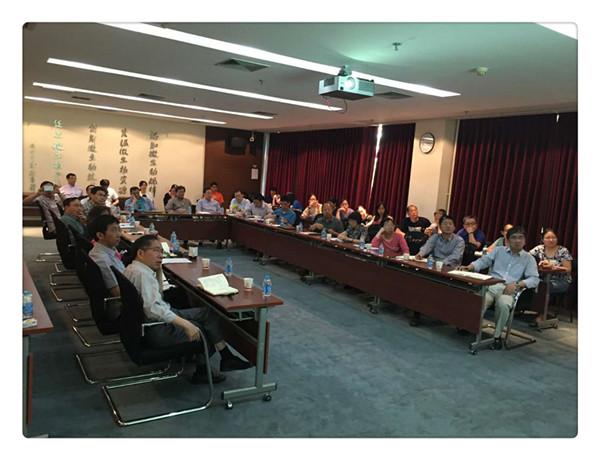A symposium on “Microbiome Project”, which aimed to promote the institute’s leading role in microbiology and advance the Sino Microbiome Project, was held in the Institute of Microbiology, Chinese Academy of Sciences (IMCAS) on May 21. Over 50 research staff from the institute joined this event.
Prof. DONG Xiuzhu, vice director-general of IMCAS, hosted this symposium. Prof. LIU Shuangjiang, director-general of IMCAS, presented a keynote speech on the overall situation. He said that the project initiated a crucial research area, which was based on microbiology knowledge, technology advances, and demands of social development. “It provides novel growing points and also poses opportunities for the development of the institute.” He added.
Besides, LIU mentioned that microbiology scientists should seize such a good chance to unify national demands and scientific progress, and the institute ought to make appropriate plans, improve discipline layout to enhance its role in the project.
After that, a series of microbial scientists delivered reports and discussed “International Microbiome Project”, including brewing microbiome, rhizosphere microbiome, intestinal microbiome, marine microbiome, environmental microbiome, and new technologies in microbiome research.
Focusing on the possible research topics on microbiome, participants discussed the solution to advance the Sino Microbiome Project, which was based on the trend of the International Microbiome Project and early achievements of IMCAS in this field.
The symposium covered four achievements: first, to propose future works on implementing the projects, which should be motivated from national strategic demands and focus on the fields of human health, agriculture development, and environment protection; second, to develop interdisciplinary research, which should promote the advance of microbiome and generic technology; third, to converge inter and intra research resources, which could formulate a core team on the national microbiome project; forth, to unify inter and intra leading institutions, which could take positive parts in the advance of the project.
